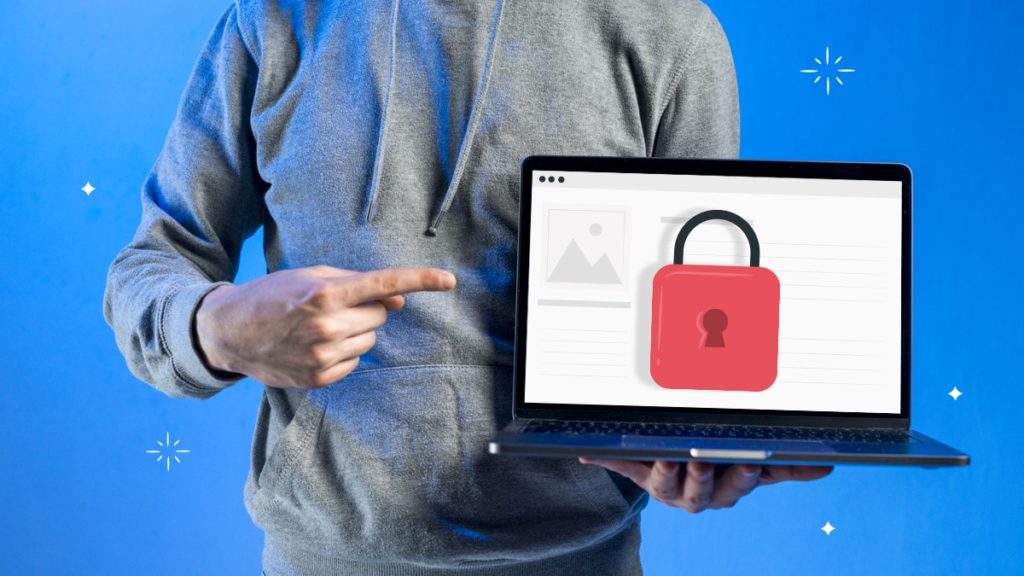The internet is undoubtedly an integral part of our daily lives. From communication to shopping, entertainment, and accessing information, the internet offers convenience and connectivity like never before.
However, as we immerse ourselves in the virtual world, it is essential to prioritize our online safety and security. In this article, we will explore some of the best tips for staying safe online while using Xfinity Internet in the USA, ensuring that we can fully enjoy the benefits while safeguarding ourselves from potential threats. Let’s dive in!
Table of Contents
Top Tips for Online Safety in the USA
To stay safe online in the USA, you must follow these effective tips:
1. Using Unique and Strong Passwords
One of the fundamental steps toward online safety is using strong and unique passwords. A strong password should consist of a mixture of numbers, letters (both uppercase and lowercase), and special characters.
You should also avoid adding guessable information such as pet names, birthdates, etc. Moreover, you should use a unique password for every online account for protection against unauthorized access if any account is compromised.
2. Keeping Devices and Software Updated
You must update your software and devices regularly to stay safe online. These updates often include essential security patches that address potential vulnerabilities that hackers could exploit. To ensure you’re using the latest and most secure versions, it’s advisable to enable automatic updates whenever possible.
3. Implementing Two-Factor Authentication
To improve the security of your online accounts, consider implementing two-factor authentication (2FA). With 2FA, you will need to provide an additional verification code, typically sent to your mobile device, along with your password to access your accounts. This helps protect against unauthorized access even if others obtain your password.
4. Being Cautious with Email and Phishing Scams

Email remains a prevalent avenue for cybercriminals to deceive unsuspecting individuals. It is crucial to exercise caution when encountering emails from unknown sources or those that appear suspicious. To protect yourself, refrain from clicking on links or downloading attachments from such emails, as they could potentially contain malware or be part of phishing scams designed to extract your personal information
5. Securing Personal Information
Protecting your personal information is vital to online safety. Be cautious about sharing sensitive data such as Social Security numbers, bank account details, or passwords through email or on unsecured websites. Only provide personal information on trusted websites that use encryption (look for “https” in the website address) and have a solid reputation for security.
6. Utilizing Secure Wi-Fi Networks
When accessing the internet through public Wi-Fi networks, exercise caution. Public networks are often unsecured, making it easier for hackers to intercept your data. Whenever possible, use a virtual private network (VPN) to encrypt your internet traffic and ensure your data remains secure.
7. Avoiding Suspicious Websites and Downloads

To stay safe online, you should avoid visiting suspicious websites or downloading files from untrusted sources. Such websites or downloads may contain malware that can compromise your device and personal information. Stick to reputable websites and verify the legitimacy of downloads before proceeding.
8. Using VPN for Added Security
A VPN provides an additional layer of security and privacy when browsing the internet. It encrypts your online traffic and routes it through a secure server, masking your IP address and making it difficult for anyone to track your online activities. Consider using a reputable VPN service to protect your data and maintain anonymity while browsing.
9. Practicing Safe Social Media Usage
Social media platforms have become a significant part of our online lives. To ensure safety on social media, be mindful of the information you share publicly. Check and adjust privacy settings to control access to your personal and post details. Avoid accepting friend requests from unknown individuals and be cautious of sharing personal information or your location publicly.
10. Regularly Backing Up Data
Data loss can occur due to various reasons, such as hardware failure or malware attacks. Regularly backing up your important data and files ensures that even if an unfortunate event occurs, you can still access and restore your information. Use external hard drives, cloud storage services, or automated backup software for convenience and peace of mind.
11. Being Mindful of Online Transactions

When making online transactions, such as purchasing products or providing financial information, make sure you are on a secure website. Ensure the presence of a padlock icon in the browser’s address bar and verify that the website’s URL begins with “https” to ensure a secure connection. Avoid entering sensitive information on websites that don’t have these security indicators.
12. Educating Yourself on Online Threats
Staying informed about the latest online threats is crucial to maintaining online safety. Keep up with cybersecurity news and be aware of common scams and tactics used by cybercriminals. By staying informed, you can better protect yourself and identify potential threats before they cause harm.
13. Teaching Children about Online Safety
If you have children who use the internet, you must educate them about online safety. Teach them about responsible internet usage, the potential risks, and how to protect their personal information. Encourage open communication so they feel comfortable discussing any concerns or issues they encounter online.
Final Thoughts
The internet offers a wealth of opportunities, but it’s essential to prioritize your online safety. Following the best tips for staying safe on the internet can reduce the risk of falling victim to cybercrime or privacy breaches, especially in the USA.
Remember to use strong and unique passwords, enable two-factor authentication, keep your software and devices updated, and stay vigilant against phishing scams. Educate yourself about online threats, practice safe social media usage, and teach children about online safety. These precautions allow you to enjoy a secure and positive online experience.

Alex is fascinated with “understanding” people. It’s actually what drives everything he does. He believes in a thoughtful exploration of how you shape your thoughts, experience of the world.



